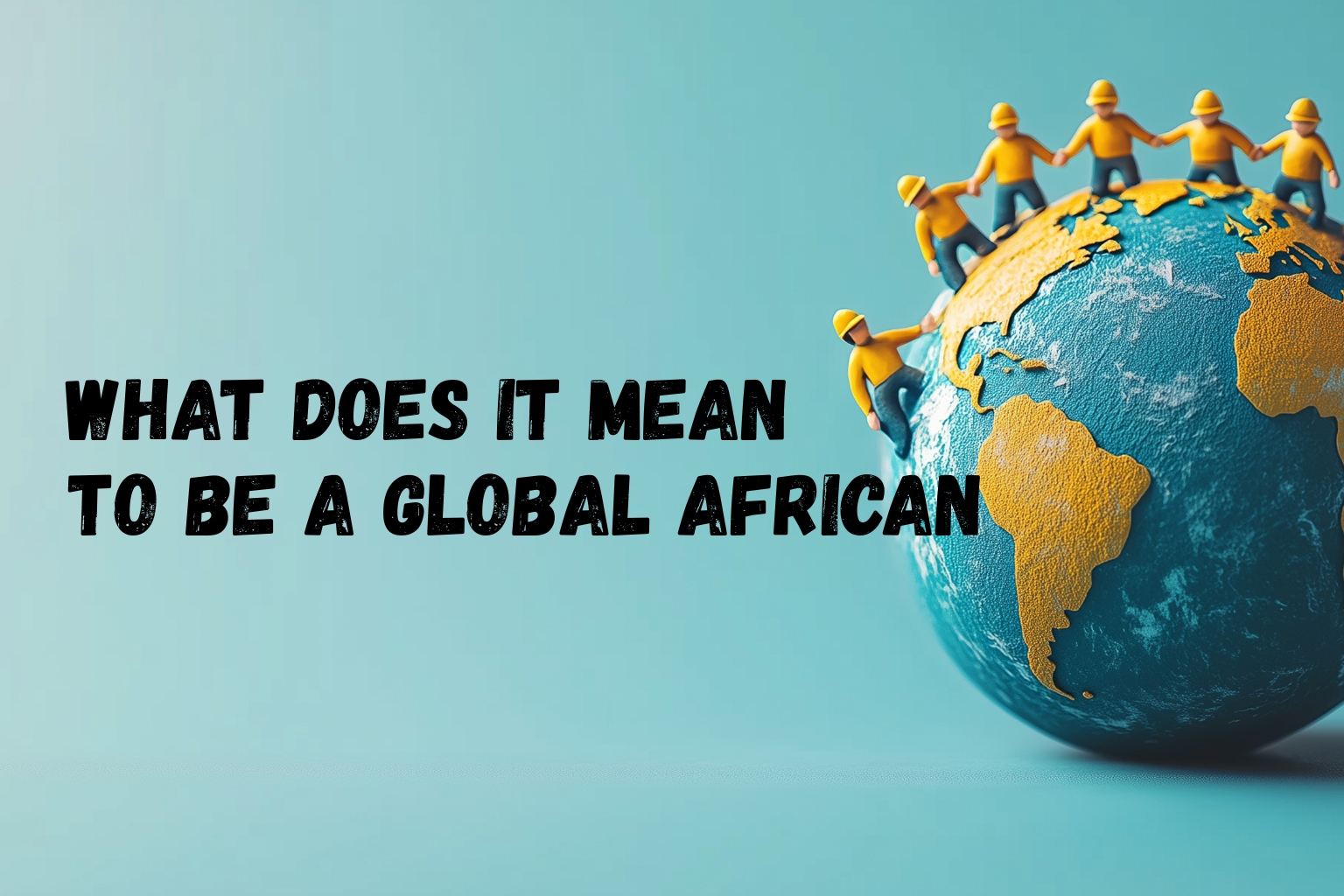By Bunmi Oyinsan (Ph.D.)

What’s global citizenship? We need to understand what global citizenship means before we understand what being a global African means. Ideally, Global citizenship should mean that every person is an equal citizen of the world and quite apart from our common humanity, it should also refer to the fact that, whether or not we are aware of it, major decisions and actions, whether social, political, environmental etc, taken in one part of the planet affect people living in different parts of the world.
Why do we need to understand what Global citizenship means?
When we understand what global citizenship is supposed to mean, it should be easier for us to unwrap what it means to be global African citizens. As global Africans we must be aware of and understand our place in the wider world, we should also be aware that it is not enough to take active roles in our communities but that the survival of our communities and the success of are activism depend on actions and decisions being taken in other places and it is our responsibility to look out for how those decisions affect us now and in future the generations of Africans wherever we find ourselves.
Global citizenship should be a gain of globalization, but is it? Now the concept of globalization is, of course, not new, no matter how hard its proponents work to convince us that it is a new panacea to help the developing world. Globalization started with the European colonization of the Americas, Africa, and Asia. Think about it. Modern globalization began by mercenaries like Columbus and others, who we have been led to believe were explorers, who were financed by their monarchs to go and look for resources to save their impoverished kingdoms in Europe.
What were Columbus and others doing?
Replace human cargo with natural resources today, and the connection is quite clear. Countries in Europe simply took advantage of the abundance of resources their mercenaries found in other territories and in ways similar to the kind of mayhem which those early Europeans operators of Globalization wrought in the territories which they ravaged, violence, starvation and corruption are the order of the day now in the developing world. In spite of evidence to the contrary, we remain coned into believing that globalization is a recent concept and that trade liberalization will help our development in spite of the accelerating decrease in the qualities of life in the developing world.
My point here is not to condemn the notion of globalization. I believe it is harmful only because a section of the world seems to have the kind of vision that allows them to exploit the resources of others at the expense of the rest of us.
Globalization, which is supposed to be the process by which organizations develop international influence or operate on an international scale, is obviously driven by the economic and political interests of the economic North. While globalization is supposed to open up the flow of products ideas, people, and information, it has so far been a one-way traffic in the sense that while it has more readily opened up avenues to more wealth and the advantages of global citizenship for people from the economic north, the same access has been increasingly denied to people from the economic south. If anything, rather than help, it has reinforced the idea of global economic domination. Globalization has been responsible for more uneven development because of the continued exploitation of resources from underdeveloped countries by developed countries. It has undermined the ability of citizens from the economic south to aspire to any form of equal global citizenship.
Those of us from developing countries in Africa, the Caribbean, and other places are fully aware that we can not just wake up and decide that we want to exercise our rights as global citizens by going on holiday or going to visit family in almost any country in the Northern Hemisphere without the hassles that affect getting entry to such places. I’m not even talking about economic migration here often. The fact that you can afford to pay your own way is no longer even relevant because of the level of gatekeeping that most countries in the economic north have been forced to put into place because most of our countries in the economic south are hardly life-sustaining. A situation which has continued to be exacerbated by the widening of the economic gap caused by the global economic infrastructure that has been skewed to continue enriching developed countries at the expense of the developing ones. So, is it therefore any wonder that most young people in the economic south faced with an abysmal future are bent on migrating to greener pastures?
Nigerians have a colorful way of describing this wave of forced economic migration. Really, can we blame anyone for wanting to JAPA, (usually translates to mean to migrate by any means necessary)? The ability to migrate, that is, move from one place to another for better economic opportunities, is as old as human beings have been on this earth, and in an ideal world, it should be one of the gains of globalization. Global citizens should have the opportunity to move around the globe if indeed we are all supposed to be free and equal citizens. However, this very notion is Utopian. That is why we find shiploads of human beings trying to make their way to Europe in search of better opportunities being turned back on the high seas. This is in the same manner large bands of people from central and southern America who are forced by poverty and insecurity and are now bent on making their way into the US only to be met by all kinds of visible and invisible fences and threat to build even higher our walls. A phenomenon which then led to Americans electing a not-quite-mentally-balanced man as president of the so-called leading country of the free world. The point I’m trying to make is that the ideal of global citizenship grows increasingly elusive, which is why the idea of a global African citizenship should be one that appeals to us. There isn’t just strength but also wisdom in numbers.
Before, I try to encapsulate what I believe African global citizenship should entail, let me try and unpack what I conceive as the relationship between Pan-Africanism and a global African citizenship. At its inception Pan-Africanism stemmed from movements that were dedicated to establishing independence for African nations and the cultivation of unity among black people throughout the world. Behind its evolution was the idea that people of African descent have common interests and should be unified.
Historically, Pan-Africanism has often taken the shape of a political and cultural movement for the independence of countries. I’d like to situate global African citizenship as a natural offshoot of pan-Africanism, in the sense that now that our countries are independent, at least on paper, global African citizenship should propel us as citizens of whatever country or countries we find ourselves on this earth. It should commit us to work towards advancing the notion of equality within and beyond our national borders. I say countries because some of us have citizenships of more than one country
Global African citizenship should make us continue to engage our local challenges while situating them within the global context. In other words, global African citizenship should help us connect the dots better as political, climate, feminist, race, or whatever kind of activism we’re engaging in. Global African citizenship should always make us cognizant of the bigger picture by linking our local situations with global connections.
